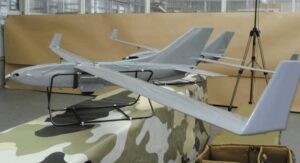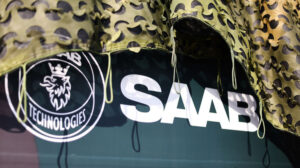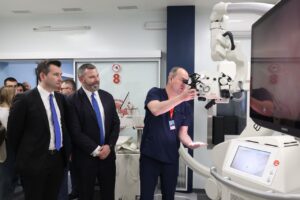
The Czech Republic will take part in six public investment projects to modernize Ukrainian medical institutions.
According to the Ministry of Health, the European Commission has now agreed on projects to modernize the Lviv Regional Hospital for War Veterans and the Repressed, Rivne Regional Hospital for War Veterans, Volyn Regional Clinical Hospital, Kryvyi Rih City Hospital #5, Dnipro City Clinical Hospital #16, and Kyiv Regional Children’s Hospital.
The Ministry of Health notes that the Czech Republic is a member of the Ukraine Facility program and is potentially ready to finance the reconstruction and modernization of 13 hospitals in seven regions of Ukraine.
So far, Russians have damaged 1984 medical facilities and destroyed another 301. According to the World Bank, the reconstruction needs in Ukraine’s healthcare sector over the next 10 years amount to $19.4 billion.
Since the start of the full-scale war, the Czech Foreign Ministry has allocated EUR 4.3 million for medical equipment and machinery for Ukrainian hospitals, ambulances, buses, and communications equipment for medical units.

Ukraine has supplied an additional 3,850 tons of wheat flour to Syria as part of President Volodymyr Zelenskyy’s humanitarian program Grain From Ukraine, Foreign Minister Andriy Sybiga said.
“Together with 500 tons in December, this will provide 60 thousand Syrians for six months,” he wrote on social networking site X.
Sybiga assured that Ukraine continues to support the Syrian people and food security in the Middle East.

PJSC “Meridian” named after Korolyov” (Kyiv), a part of the state concern ‘Ukroboronprom’, plans to allocate 30% or 70% of its net profit of UAH 11 million for dividends in 2024.
These two draft resolutions on dividend payments are on the agenda of the general meeting of shareholders scheduled for April 17.
If 30% of the net profit is allocated to dividends, they will be accrued in the amount of UAH 3.27 per share of UAH 0.5 par value, and 70% – UAH 7.65 per share.
The dividends are to be paid by July 1 this year.
As reported, in 2023, Meridian paid dividends to shareholders of UAH 11 million (90% of net profit of UAH 12.205 million) at the rate of UAH 10.90 per share.
According to the National Securities and Stock Market Commission (NSSMC), as of the third quarter of 2024, the state, represented by Ukroboronprom, owns 50%+1 share of PJSC Meridian named after Korolyov, and another 40.0753% is owned by Meridian Soyuz LLC, one of the beneficiaries of which, according to Clarity Project, is Vadym Hryb, co-owner of the Tekt investment company.
At the meeting, the shareholders also plan to change the type of company from a public joint-stock company (PJSC) to a joint-stock company (JSC) and re-elect the supervisory board, terminating the powers of the previous six-member board.
“Founded in 1953, Meridian is a diversified enterprise specializing in the development and serial production of electronic devices for various purposes, including radio measuring instruments: frequency meters, spectrum analyzers, and generators.
The company also performs galvanizing, laser cutting of metals, and plastic molding.
According to Clarity Project, the company increased its net revenue by 24% in 2023 to UAH 177.43 million, while net profit decreased by 27% to UAH 12.2 million.

Swedish and Ukrainian defense companies Saab and Radionix have signed a memorandum of understanding to form a strategic cooperation in the field of sensors and defense electronics to strengthen Ukraine’s defense capabilities.
According to Saab’s website, the cooperation will involve the development and maintenance of sensors and defense electronics, utilizing the strengths of both companies.
Radionix will provide valuable know-how in the field of radar and optical sighting equipment, while Saab will contribute its experience in the defense industry and knowledge in these technological areas.

Citi Ukraine has provided a grant to the Unbroken Foundation in the amount of USD 900 thousand. The funds were used to purchase a modern Arveo8 GLOW400 microscope.
This high-precision equipment will allow doctors to perform complex operations to remove dangerous shrapnel in the brain and spinal cord, as well as to treat brain tumors. Over the course of a year, the microscope will help to perform 250 neurosurgical operations. Patients will be able to receive the necessary assistance at the UNBROKEN Center at St. Luke’s Hospital of the First Medical Association in Lviv.
Alexander McWhorter, Chairman of the Management Board of Citibank JSC, said: “Supporting healthcare is one of Citi’s key objectives in Ukraine. Investments in healthcare save lives and create the future. We believe that providing a grant for the purchase of a microscope will be a useful contribution to the development of neurosurgery in time of war and will create opportunities for successful treatment of patients at the UNBROKEN Center.”
The Arveo8 GLOW400 microscope will enable the surgeons at the UNBROKEN Center to remove tiny fragments of shrapnel with maximum precision. Thanks to its high technology, even the smallest damaging fragments can be visualized and separated without additional damage to the brain and spinal cord tissue.
Oleksandr Kobzarev, Executive Director of the UNBROKEN Charitable Foundation, emphasized: “We are very grateful for the generous financial support from Citi Ukraine and co-financing from the Meest Foundation. This is a clear manifestation of social responsibility and involvement in solving complex humanitarian issues. Together we prove that cooperation between charitable foundations and business multiplied by the skill of doctors can work real miracles. This equipment will save lives and help restore health to our defenders with the most severe brain injuries. Thank you for being a part of our mission!”
In addition to shrapnel wounds, the microscope will be useful for surgical intervention in the treatment of brain tumors. The surgeons will be able to remove even the most complex tumors, clearly delineating the boundaries of the tumor and healthy tissue.
UNBROKEN doctors say: “This microscope is essential for performing complex surgeries to remove small but extremely dangerous shrapnel in the brain and spinal cord of our defenders.”
Since February 2022, Citi and the Citi Foundation have donated more than $6.5 million to support humanitarian initiatives, including rebuilding schools, providing legal and psychological counseling to women, and helping Ukrainian refugees find safe havens in other countries.
About Citi Ukraine
Citi Ukraine is a member of Citigroup, one of the four largest U.S. banks by assets. We have been in Ukraine for over 25 years. Our offerings cover all aspects of cash and liquidity management, trade services and finance, treasury, corporate finance and lending, securities services and issuer services. We are honored to help unlock the country’s economic potential by serving nearly 500 clients, including the public sector, multinationals, leading Ukrainian companies and foreign investors looking to invest in the Ukrainian market.
About the UNBROKEN Charitable Foundation
The UNBROKEN Charitable Foundation (the “Foundation”) is a charitable organization that specializes in raising funds to help war victims. The Foundation actively cooperates with the National Rehabilitation Center “UNBROKEN”, providing financial support for the provision of comprehensive medical care. In times of war, we are focused on creating opportunities for treatment of Ukrainians in their own country, providing medical facilities with the most modern equipment.

In February 2025, Ukraine increased electricity imports by 33% to 244.2 thousand MWh compared to January and reduced exports by 61% to 33.1 thousand MWh, Ukrainian energy and climate think tank DiXi Group reported citing Energy map.
According to its post on Facebook on Wednesday, the total volume of imports exceeded exports by more than 7 times over the month.
Out of 33.1 thousand MWh of exports, the largest share went to Moldova – 15.5 thousand MWh (47%). Another 10 thousand MWh (30%) went to Hungary, 3.7 thousand MWh (11%) to Romania, 2.9 thousand MWh (9%) to Slovakia, and 1 thousand MWh (3%) to Poland.
DiXi Group experts note that during the last two decades of February, exports were almost non-existent due to a deficit in the power system as a result of massive Russian missile and drone strikes (February 1, 11 and 20), as well as a drop in air temperature.
On the contrary, imports in February, according to their data, increased, reaching 244.2 thousand MWh against 183.1 thousand MWh in January. Of this amount, 85.2 thousand MWh (35%) came from Hungary, 73.3 thousand MWh (30%) – from Slovakia, 46.3 thousand MWh (19%) – from Poland, 37.1 thousand MWh (15%) – from Romania, 2.3 thousand MWh (1%) – from Moldova.
The increase in imports was recorded in all available directions (from 34% to 80%), except for Poland, from which it decreased by 23%.
DiXi Group notes that compared to February 2024, when 84.1 thousand MWh were imported, imports have almost tripled.